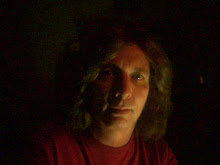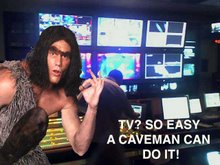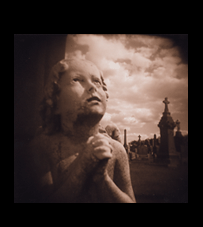 Ok, I like to read. I read a lot in fact. I don't like reading novels, they bore me, well, not really some are okay. I don't read the sports page, I don't read music magazines that much either, even though I am a musician and songwriter. I don't buy or read pornographic magazines or any kind of men's magazines. I just have no interest in any of that stuff, it bores me. I love history, astronomy, biographies, technical manuals (got you there, LOL), and pretty much anything I find on the net about said subjects. But really, I only read technical manuals when I absolutely have to. Most of the time they are usually written by engineers who have no concept of how to write a manual are instead playing with their calculators/slide rules, building "death stars", programming their cell phones so they can call other engineers building "death stars" or adjusting their pocket protectors. I have often thought of just making a living out of re-writing TV, Radio & Recording manuals for the OPERATORS as I usually know how to operate the damned piece of equipment in question, but I digress.
Ok, I like to read. I read a lot in fact. I don't like reading novels, they bore me, well, not really some are okay. I don't read the sports page, I don't read music magazines that much either, even though I am a musician and songwriter. I don't buy or read pornographic magazines or any kind of men's magazines. I just have no interest in any of that stuff, it bores me. I love history, astronomy, biographies, technical manuals (got you there, LOL), and pretty much anything I find on the net about said subjects. But really, I only read technical manuals when I absolutely have to. Most of the time they are usually written by engineers who have no concept of how to write a manual are instead playing with their calculators/slide rules, building "death stars", programming their cell phones so they can call other engineers building "death stars" or adjusting their pocket protectors. I have often thought of just making a living out of re-writing TV, Radio & Recording manuals for the OPERATORS as I usually know how to operate the damned piece of equipment in question, but I digress.I currently am reading 3 very good books about the early days of the United States. I love early American History among other things as it is so fascinating to read how the founding fathers (I said founding FATHERS, not people. I am sure that there were many great women (there were, I know about them) who were involved too, but it was predominated by, GASP! MEN! (knuckledraggers to you feminists!) After all, not to be sexist, but it was the founding father's that started the government we now know and love to bash, LOL) Anyway, here are some good books for all of you out there that like to read stuff other than the personal ads in New Times or Craig's list. And for those of my trailer park friends in Fountain, Colorado, you must learn to read first and not just stare at the pictures.
When our country was founded it was during the age of "Enlightenment" often called the birth
 of secular humanism. Well, that is true to a point. Like anything else, there were many opinions about life, humanity, science & government and it was during this time that many of the ideas we know today were founded. Remember the old saying, "opinions are like Ford Mustangs, everyone drives one." So anyway, there were so many people that had their own philosophies and ideas about "Enlightenment". Perhaps one of the most well known humanists was none other than Sir Issac Newton, the famous British scientist. One of the lesser known facts was that the word "Enthusiasm" actually came to be (as we know it) from that period. It was used to describe the religious zealots that combined;
of secular humanism. Well, that is true to a point. Like anything else, there were many opinions about life, humanity, science & government and it was during this time that many of the ideas we know today were founded. Remember the old saying, "opinions are like Ford Mustangs, everyone drives one." So anyway, there were so many people that had their own philosophies and ideas about "Enlightenment". Perhaps one of the most well known humanists was none other than Sir Issac Newton, the famous British scientist. One of the lesser known facts was that the word "Enthusiasm" actually came to be (as we know it) from that period. It was used to describe the religious zealots that combined;"The fervency of their shared convictions with an unflagging zeal to impose those sacred and salutary truths on the world at large. In its most precise sense, enthusiasm referred to the belief in personal divine revelation or inspiration. More generally, however, enthusiasm was dogmatic certainty in the infallibility of one's religious beliefs coupled with the implacable and unrelenting effort to impose those beliefs on all persons and institutions. The struggle against enthusiasm was the central project of the enlightenment."
from "Hamilton, Adams, Jefferson, the Politics of Enlightenment" by Darren Staloff
I can hear all the bones cracking in all the necks out there of people doing their best Linda Blair "Exorcist" imitation while yelling..."your mother sews socks that smell..."
No, Hamilton, Adams & Jefferson were not a rock group nor a law firm, jeez. Written by Darren Staloff, it explains how the founders arrived at some of the decisions they made when they decided to create the government on the secular humanist (mixed in with religious principals) models and theories popular in the age of Enlightenment. I can hear some heads exploding now. But it's a good book and explains a lot on how the founders came up with many of the ideas they did and how they attempted to take the very best of civilized law and principals to create the government we now have that is still known as "the great experiment." It's too bad that kids in high school aren't required to read this kind of stuff, they could learn a lot about how our country was founded. Of course, I often wonder if one my personal favorites, Benjamin Franklin, would get a kick out of reading the fiction that comes out of the New York Slimes (New York Times).
 Another one that I am reading in the time period of the "War for Independence", is "American Scripture" by Pauline Maier. It details the events leading up to the writing of the Declaration of Independence and has some fascinating notes and stories taken from historical documents from the time. The problem with the way they teach history to kids anymore, is that they don't personalize it. When you get inside the life of the people that made history back then, you find them to be almost just like the rest of us, 'cept they wore cooler clothes and you didn't see any of them riding their horses or buggies with cell phones sticking out of their ears whilst Baroque music was blaring out the back. Kinda hard to stick a quartet in the back of the buggy. Ah, those were the days.
Another one that I am reading in the time period of the "War for Independence", is "American Scripture" by Pauline Maier. It details the events leading up to the writing of the Declaration of Independence and has some fascinating notes and stories taken from historical documents from the time. The problem with the way they teach history to kids anymore, is that they don't personalize it. When you get inside the life of the people that made history back then, you find them to be almost just like the rest of us, 'cept they wore cooler clothes and you didn't see any of them riding their horses or buggies with cell phones sticking out of their ears whilst Baroque music was blaring out the back. Kinda hard to stick a quartet in the back of the buggy. Ah, those were the days. "American Scripture" is well-researched and well-written. I would recommend it to anyone that even gives a damn about where our country came from and how it came to be the country we now know. I don't think the founding fathers' envisioned the juggernaut the United States has become, though it's evident from reading many of their writings and the federalists papers, they had a suspicion that if the experiment worked, we as a country were going to become a major force in the world. They were right.
And finally, we skip ahead a few years to the war of 1812. It's funny how all the liberals out there are belly-aching about the GWOT (to all my friends in Fountain, Colorado, that is not the do-dad that goes between the thing-a-ma-jig and the whacha-ma-callit on your '73 Chevy El Camino with the Primer Grey paint job, it's short for Global War On Terror). When you read about how the war of 1812 came to be, you realize that we have certainly gotten ourselves into "bad" wars before. As a side note, I keep asking liberals exactly what "perfect" war they are comparing this one to. For some reason, they seem to think that the conflict in Iraq is a different war from the conflict in Afghanistan. Hmmm, by that kind of logic, then us fighting the Nazi's in WWII was one war and us fighting the Japanese was another one and then finally, the Italians surrendering was another (the Italians didn't really have the stomach to fight for the most part in WWII, they were happy to just give up and wait the war out. The french taught them well.) The war we are fighting now has different battlefields or fronts, Iraq is but a front in the GWOT as is Afghanistan or Africa or where ever. There is no perfect war, never has been, never will be. All wars are full of confusion, mistakes and bad decisions. If you want proof, go back and read about the war between the states, the war for independence, WWI and WWII as well as Korea & Vietnam. War sucks, war is the worst trait of humanity, but sometimes it's a necessary evil that needs to be done. And I would rather be over there having a terrorist clearance sale in Iraq than have my kids or my friends or their kids, fighting those people on the streets of Denver, Phoenix, LA or New York or even Fountain, Colorado. We didn't ask for this war, but we will finish it (provided of course that the democrats don't get their way, they learned well from the french how to surrender. As is said, the democrats are committed to defeat and will snatch defeat out of the jaws of victory) After 9.11, all bets are off.
Anyway, the name of the book is "Union 1812" and you see how the country was so divided
 about this war and many claimed that the president tricked the country into going to war over false pretense, (sound familiar?) This is really just after the country had settled the war with Great Britain in the war for independence. I really think the Brits were still not happy with getting their butts kicked by a bunch of farmers, but hey, that's still a matter of discussion. It's a good book in that you read about so many of the players that were involved and how they affected the country. The war of 1812 was really as it says, the 2nd war of Independence. As I said, the Brits weren't too happy and they actually thought if they kicked our butts, that the US would come back under the rule of the English Crown. Guess they didn't figure that we are not like the french.
about this war and many claimed that the president tricked the country into going to war over false pretense, (sound familiar?) This is really just after the country had settled the war with Great Britain in the war for independence. I really think the Brits were still not happy with getting their butts kicked by a bunch of farmers, but hey, that's still a matter of discussion. It's a good book in that you read about so many of the players that were involved and how they affected the country. The war of 1812 was really as it says, the 2nd war of Independence. As I said, the Brits weren't too happy and they actually thought if they kicked our butts, that the US would come back under the rule of the English Crown. Guess they didn't figure that we are not like the french.By the way, sorry about the bar code labels, I did check them out from the People's Republic of Mesa's library and they have this pesky habit of putting the damned things on the covers. I mean, who in their right mind would steal books like these? Now, if it was a playboy or something, I'd understand it, but someone who has an interest in early American history (or any history for that matter) probably has a job, is above average intelligence, knows how to drive without a cell phone in their ear all the time, doesn't listen to rap music or buzzsaw metal and doesn't sit around in their underwear on the weekends drinking beer and watching sports or pay-per-view porn. Now, sometimes, I can be about as sharp as a cotton swab, but you really have to be desperate to steal a library (pronounced LIE-BRAR-E, not LIE-BARRY) book, especially from the Peoples republic of mesa, they might charge you with a DUI, Grand Larceny, extreme book-checking-out or something knowing those guys.
Anyway, hope you enjoyed that. I recommend those books to anyone interested in American History and chances are, my kids have already read them as they like history like Dear old Dad, but then again, maybe not. I don't know, LOL. Either way, it's good to read even if just to have a touch of understanding of the world around us.
And yes, believe or not, I know how to read...
No animals or homeless people were hurt in the posting of this blog.












No comments:
Post a Comment